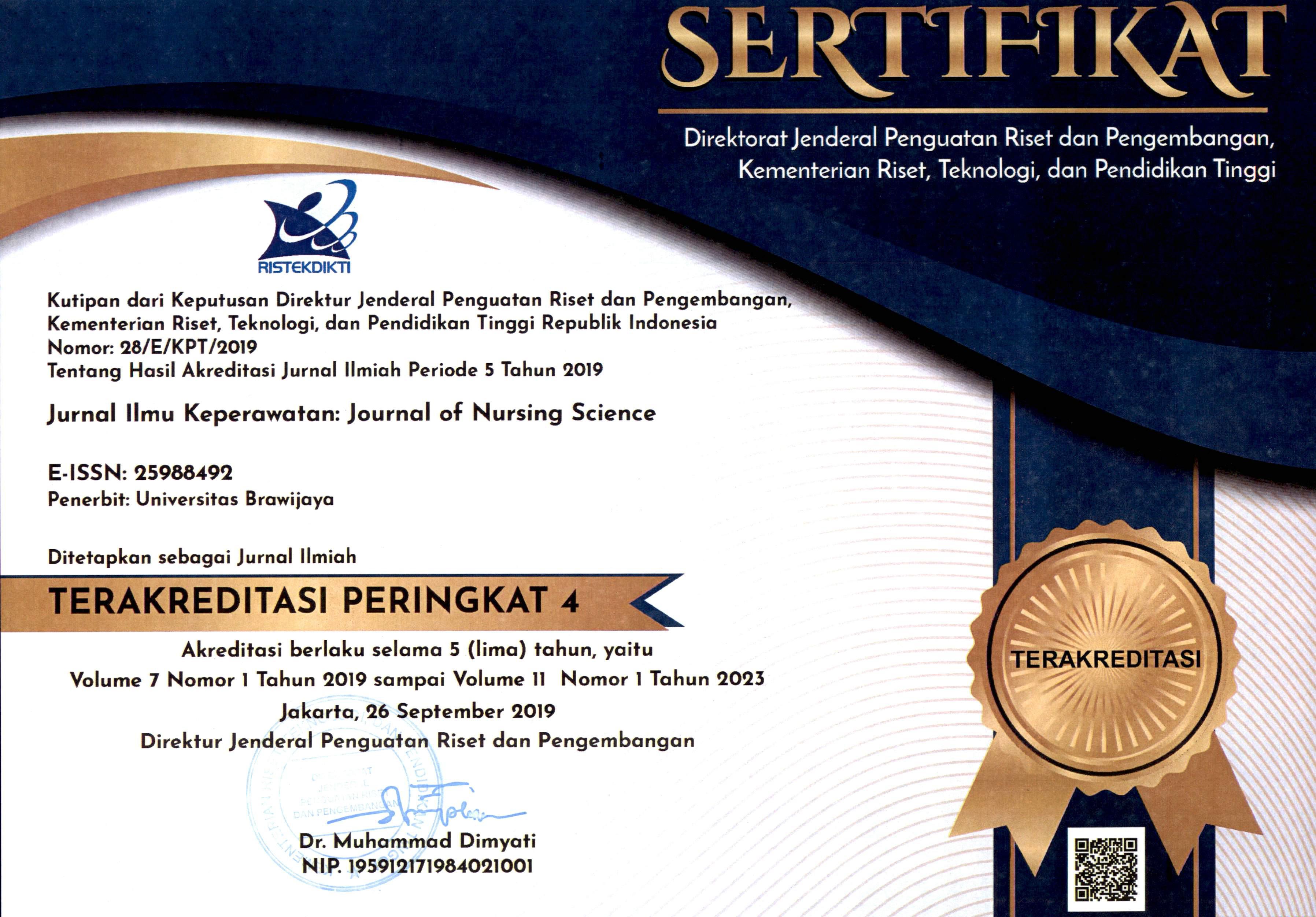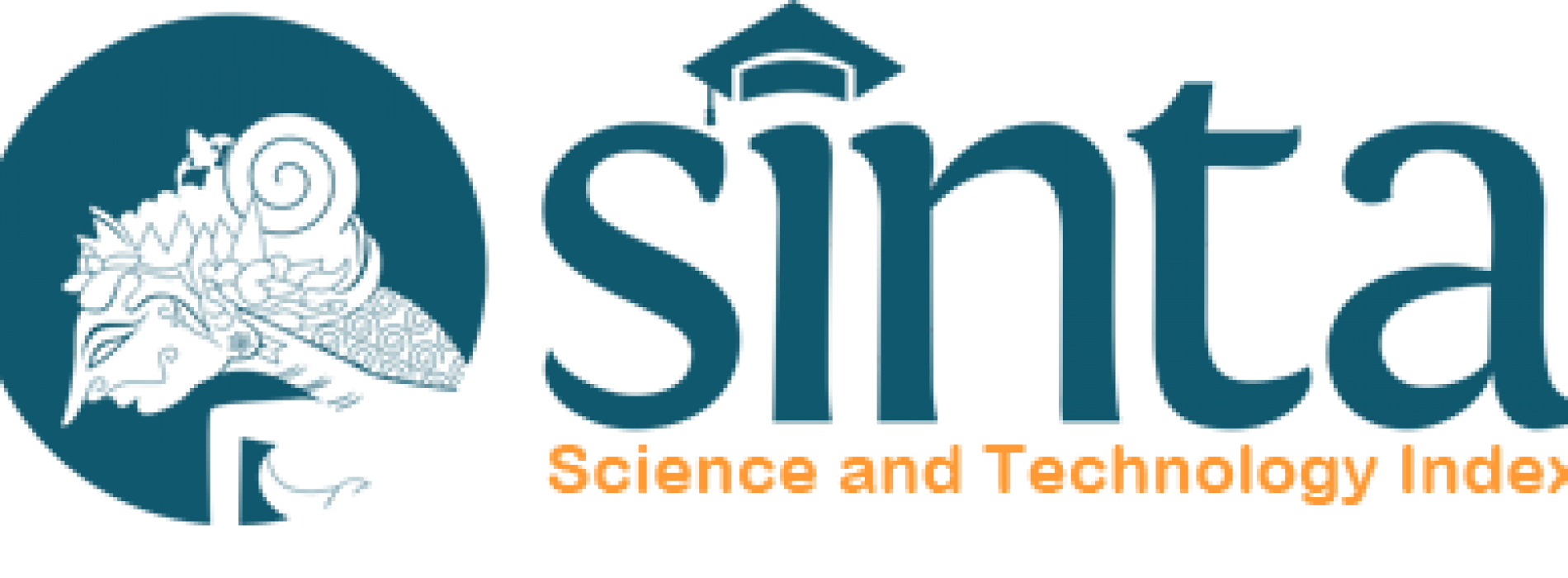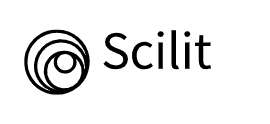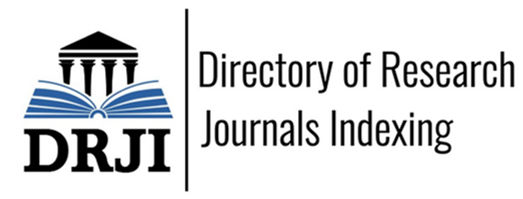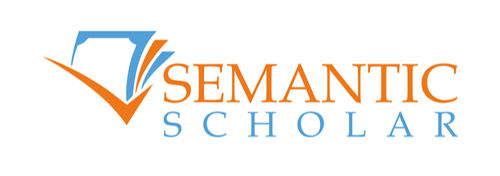Correlation between Perception with The Needs of Structured Education for Psoriasis Patients during The Pandemic of COVID-19
DOI:
https://doi.org/10.21776/ub.jik.2022.010.01.3Keywords:
Psoriasis, Perception, Structured educationAbstract
The number of psoriasis patients visiting the health services during the COVID 19 pandemic is decreasing. Meanwhile, routine control is needed to maintain the prognosis education of psoriasis. The patient is suspected of having frequent problems and flares at home. Therefore, it is necessary to study the perception in assessing the need for structured education in a group of psoriasis patients. This study aimed to determine the correlation between perception with the need for structured education. Twenty psoriasis patients at General Hospital Dr. Saiful Anwar Malang were interviewed by telephone. The independent data consisted of patient perception (B-IPQ) of psoriasis, while the dependent data consisted of the need for structured education. Bivariate data showed the correlation between perception (B-IPQ) with the need for structured education, indicated by a p-value = 0.05. In conclusion, this study's perception (B-IPQ) level significantly correlates with the need for structured education. Promoting health education among people with psoriasis is essential to create a good perception of this diagnosis.
References
- Badan Mutu Pelayanan Kesehatan. (2020). Kumpulan Referensi Layanan Kesehatan Esensial Pada Masa Pandemi Badan Mutu Pelayanan Kesehatan. http://badanmutu.or.id/2020/09/02/kumpulan-referensi-layanan-kesehatan-esensial-pada-masa-pandemi/.
- Bartholomew, L.K., Parcel, G.S., Kok, G., and Gottlieb, N. H. (2006). Intervention Mapping Step 1: Needs Assessments. in Planning Health Promotion Programs: An Intervention Mapping Approach, pp. 193–250, Jossey-Bass, San Francisco, Calif, USA.
- Gudjonsson, JE., Elder, JT. (2012). Psoriasis: General Medicine. Wolff, K., Goldsmith, LA., Katz (8nd ed., pp. 197-230 2). New York. Mc Grew Hill.
- International Psoriasis Council. (2020). Statement on the Coronavirus (COVID-19) Outbreak, March 11. https://www.psoriasiscouncil.org/blog/Statement-on-COVID-19-and-Psoriasis.htm.
- Jacobson, C.C., & Kimball, A. B. (2004). Rethinking the Psoriasis Area and
- Severity Index: The Impact of the Area Should be Increased. British Journal of
- Dermatology, 151(2), 381–387. https://doi.org/10.1111/j.1365-2133.2004.06035.x.
- Javitz, HS., Ward, MM., Farber, E. Nail, L, Vallow, SG. (2002). Psoriatic Arthritis in the United States. J Am Acad Dermatol, 46, 850-860.
- Kelompok Studi Psoriasis Indonesia Perhimpunan Dokter Spesialis Kulit dan Kelamin Indonesia. (2014). Pedoman Tatalaksana Psoriasis dan Informed Consent.
- Krisnarto, E., Novitasari, A., & Aulirahma, D. M. (2016). Faktor Prediktor Kualitas Hidup Pasien Psoriasis. Jurnal Unimus, 49, 43–51.
- https://jurnal.unimus.ac.id/index.php/kedokteran/article/view/2584/2434.
- Lebwohl, M., Rivera-Oyola, R., Murrell, DF. (2020). Should Biologics for Psoriasis.
- Be Interrupted in the Era of COVID-19? J Amer Acad Dermatol, in press.
- Medicinsk Teknologivurdering. (2009). Sundhedsstyrelsen, Monitorering & Medicinsk Teknolo-givurdering. Patientuddannelse—en Medicinsk Teknologivur-Dering, 11, 3. Odense Universitet Hospital.
- Skarpathiotakis, M., Fairlie, C., & Ryan, S. (2006). Specialized education for patients with psoriasis: a patient survey on its value and effectiveness. Dermatology Nursing, 18(4), 358–361.
- National Psoriasis Foundation. National Psoriasis Foundation Benchmark Survey. (2006). http:// www.psoriasis.org/files/pdfs/press/npfsurvey.pdf.
- Price, KN., Frew, JW., Hsiao, JL., MD., Vivian., Y., Shi VY. (2020). COVID-19 and Immunomodulator/ Immunosuppressant Use in Dermatology. JAAD. Available from https://doi.org/10.1016/j.jaad.2020.03.046.
- Reich K, Ortonne JP, Gottlieb AB. (2012). Successful treatment of moderate to severe plaque psoriasis with the PEGylated Fab' certolizumab pegol: results of a phase II randomized, placebo-controlled trial with a re-treatment extension. Br J Dermatol. 167(1): 180–190.
- Shanshal M. Is the Coronavirus (COVID 19) (2020). Pandemic an Indication to temporarily Modify Dermatology Management Plans? Journal of Drugs in Dermatology April; 19(4): 436-7.
- Tim Satgas Covid-19 PERDOSKI. (2020). Pandemi Covid-19 dan Implikasinya
- Terhadap Praktik Dermatologi dan Venereologi di Indonesia. Pengurus Pusat PERDOSKI.
Downloads
Published
How to Cite
License
Copyright (c) 2022 Journal of Nursing Science Update

This work is licensed under a Creative Commons Attribution-NonCommercial 4.0 International License.
Authors published in this journal agree to the following terms:
1. The copyright of the received article shall be assigned to the journal as the publisher of the journal. The intended copyright includes the right to publish the article in various forms (including reprints). The journal maintains the publishing rights to the published articles.
2. Authors may enter into separate additional contractual agreements for the non-exclusive distribution of the published journal version of the work (for example, posting it to an institutional repository or publishing it in a book), with acknowledgment of their initial publication in this journal.
3. Authors are permitted and encouraged to post their work online (e.g. in an Institutional Repository or on their website) before and during the submission process, as this can result in a productive exchange, as well as earlier and larger citations of the published work.
4. Articles and all related material published are distributed under Creative Commons Attribution-NonCommercial 4.0 International License or CC BY-NC 4.0 license.
JNSU is licensed under a Creative Commons Attribution-NonCommercial 4.0 International License or CC BY-NC 4.0 license.
Most read articles by the same author(s)
- Alfrina Hany, QUALITY OF LIFE AND MENTAL EMOTIONAL HEALTH OF ELDERLY PEOPLE , Journal of Nursing Science Update (JNSU): Vol. 6 No. 1 (2018)
- Alfrina Hany, Linda Wieke Noviyanti, Endang Susilowati, ASSOCIATION BETWEEN HEMODIALYSIS ADEQUACY AND QUALITY OF LIFE IN CHRONIC RENAL PATIENTS UNDERGOING HEMODIALYSIS , Journal of Nursing Science Update (JNSU): Vol. 7 No. 1 (2019)
- Alfrina Hany, Klara Yunita Inuq Thomas, Ahmad Hasyim Wibisono, The Influence of AIMOHit to Medication Adherence of Hypertension Patients in Malang , Journal of Nursing Science Update (JNSU): Vol. 9 No. 1 (2021)
- Indah Kumala Sari, Yati Sri Hayati, Nurona Azizah, Alfrina Hany, The Relationship of Self-Efficacy with Learning Discipline of Teenagers during COVID-19 Pandemic at East Kalimantan, Indonesia , Journal of Nursing Science Update (JNSU): Vol. 9 No. 2 (2021)




